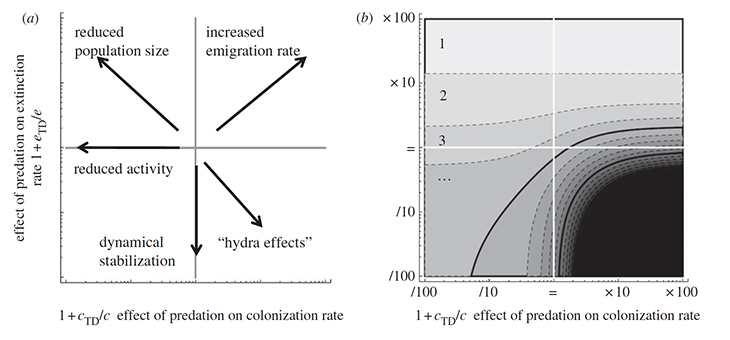CONSTRAINTS ON FOOD CHAIN LENGTH ARISING FROM REGIONAL METACOMMUNITY DYNAMICS.
Calcagno V., Massol F., Mouquet N., Jarne P. and David P. (2011).
Proceedings of the Royal Society of London Serie B, 278, 3042-3049, doi:10.1098/rspb.2011.0112
Key message :Classical ecological theory has proposed several determinants of food chain length, but the role of metacommunity dynamics has not yet been fully considered. By modelling patchy predator–prey metacommunities with extinction–colonization dynamics, we identify two distinct constraints on food chain length. First, finite colonization rates limit predator occupancy to a subset of prey-occupied sites. Second, intrinsic extinction rates accumulate along trophic chains. We show how both processes concur to decrease maximal and average food chain length in metacommunities. This decrease is mitigated if predators track their prey during colonization (habitat selection) and can be reinforced by topdown control of prey vital rates (especially extinction). Moreover, top-down control of colonization and habitat selection can interact to produce a counterintuitive positive relationship between perturbation rate and food chain length. Our results show how novel limits to food chain length emerge in spatially structured communities. We discuss the connections between these constraints and the ones commonly discussed, and suggest ways to test for metacommunity effects in food webs.
